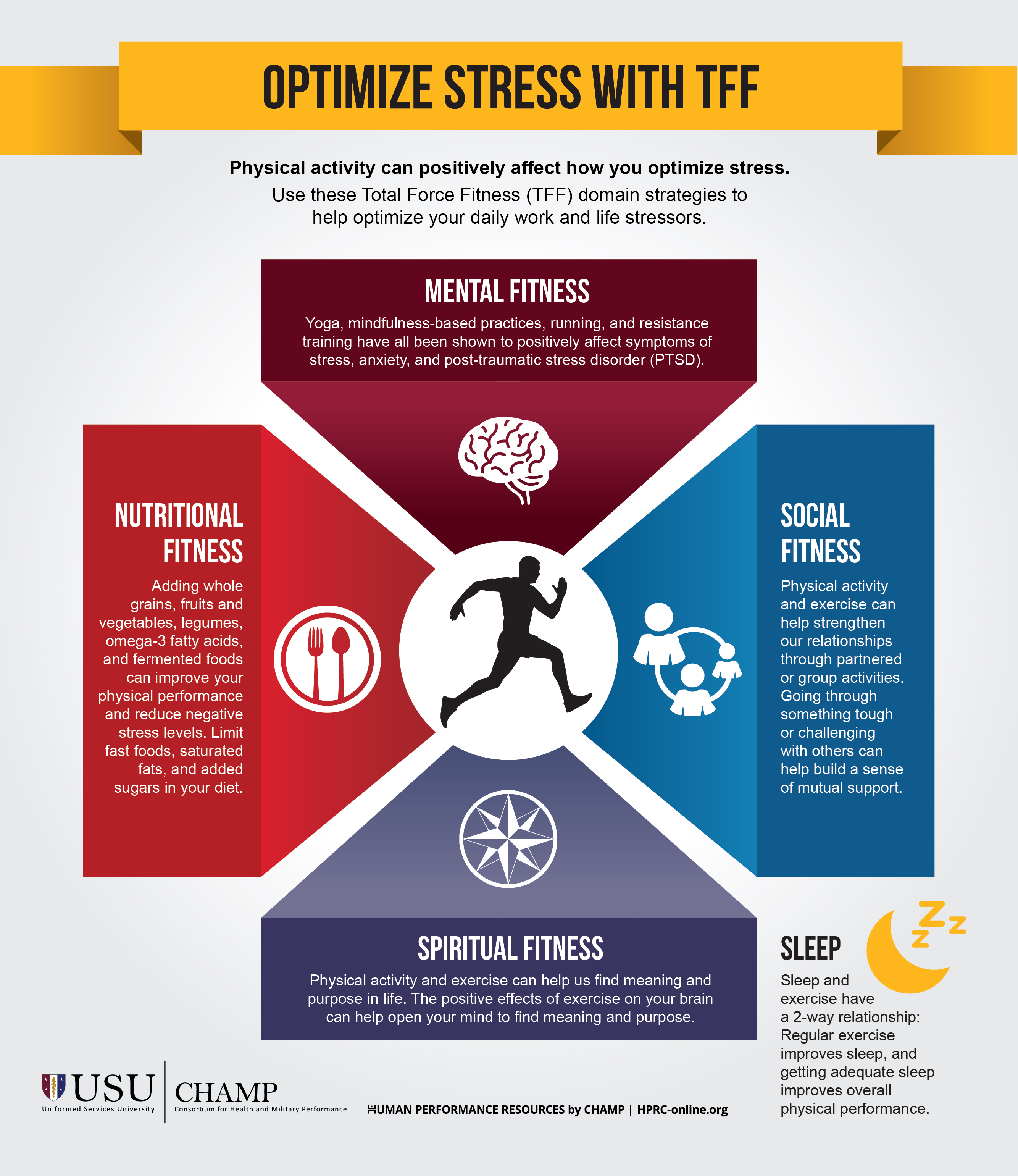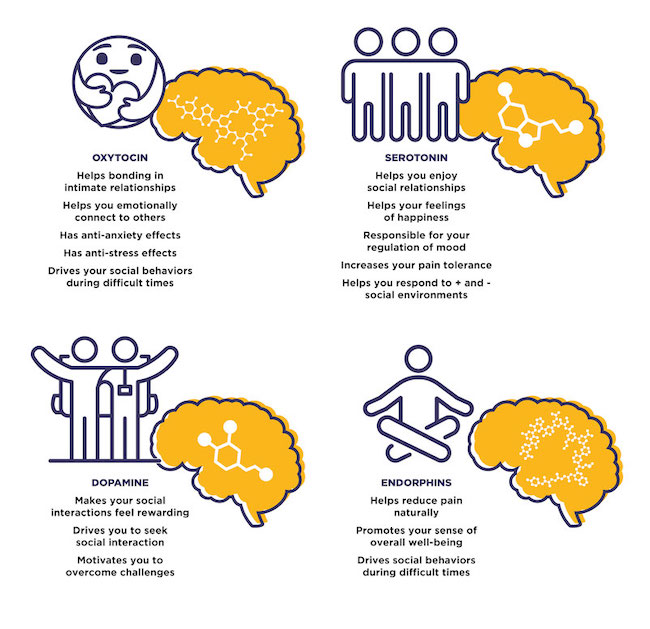Reducing stress and increasing performance require proper time management, regular exercise, and mindfulness practices. Prioritize tasks and maintain a healthy work-life balance.
Stress negatively impacts productivity and overall well-being. To combat this, adopt strategies that promote mental and physical health. Effective time management helps in prioritizing tasks and reducing anxiety. Incorporate regular exercise into your routine to enhance mood and energy levels.
Mindfulness practices such as meditation and deep breathing can significantly reduce stress. A balanced diet and adequate sleep also play crucial roles in maintaining high performance. By integrating these habits into your daily life, you can manage stress better and improve your performance both at work and in personal endeavors.

Credit: www.hprc-online.org
The Stress-performance Connection
Stress affects our performance in many ways. The connection between stress and performance is critical. Understanding this connection helps you manage stress better and improve performance.
Impact Of Stress On Performance
Stress can impact performance both positively and negatively.
| Positive Impact | Negative Impact |
|---|---|
| Increases alertness | Reduces focus |
| Boosts energy | Causes fatigue |
| Improves motivation | Leads to burnout |
Understanding these impacts helps in managing stress better.
Understanding The Stress Response
The stress response is your body’s reaction to stress. It involves several stages:
- Alarm Stage: Your body detects stress and responds.
- Resistance Stage: Your body tries to cope with stress.
- Exhaustion Stage: Your body gets tired from prolonged stress.
During the alarm stage, your heart beats faster. In the resistance stage, your body stays alert. Finally, in the exhaustion stage, you feel tired.
To reduce stress, focus on relaxation techniques:
- Deep breathing exercises
- Regular physical activity
- Mindfulness meditation
Practice these methods daily for better performance and reduced stress.
Identifying Stressors
Understanding the sources of your stress is vital. It helps in managing it better. Stress can come from many areas of life. Knowing these areas can help you take control. Let’s dive into common stressors that affect your performance.
Common Workplace Stressors
Workplace stress is very common. It can impact your health and work performance. Here are some usual suspects:
- Heavy Workload: Too much work can be overwhelming. It leads to burnout.
- Unclear Expectations: Not knowing what is expected can cause anxiety.
- Long Hours: Working long hours leaves little time for relaxation.
- Limited Control: Lack of control over tasks can be frustrating.
- Poor Work Environment: Noise, uncomfortable seating, and poor lighting add stress.
Personal Life Stress Factors
Stress does not only come from work. Personal life stressors are equally impactful. Some common personal life stressors include:
- Family Issues: Conflicts or illness in the family can cause stress.
- Financial Problems: Worrying about money is a huge stressor.
- Health Concerns: Personal health issues can be very stressful.
- Relationship Problems: Issues with friends or partners impact mental health.
- Time Management: Struggling to balance time between work and life adds stress.
Being aware of these stressors is the first step. It enables you to manage them effectively. Identify your main stressors. Then, you can start working on reducing them.
Effective Stress Management Techniques
Effective stress management techniques are essential for enhancing performance through health. Stress can affect your productivity, mood, and overall well-being. Implementing effective strategies can help you reduce stress and boost performance. Here are some proven techniques to manage stress effectively:
Mindfulness And Meditation
Mindfulness involves being present in the moment. It helps you focus and reduces anxiety. Meditation is a powerful tool to calm your mind. Practicing mindfulness and meditation daily can improve your mental clarity. It also helps you make better decisions and enhances your overall well-being.
- Deep Breathing: Take deep breaths to relax your mind.
- Body Scan: Focus on different parts of your body and release tension.
- Guided Meditation: Use apps or videos for guided meditation sessions.
Exercise And Physical Activity
Exercise is one of the most effective stress management techniques. Physical activity releases endorphins, the body’s natural stress relievers. Regular exercise can boost your mood and energy levels. It also improves your physical health, which in turn enhances your mental well-being.
| Type of Exercise | Benefits |
|---|---|
| Aerobic Exercise | Improves heart health and reduces anxiety. |
| Strength Training | Builds muscle and boosts self-esteem. |
| Yoga | Enhances flexibility and reduces stress. |
- Walk or Jog: 30 minutes a day can make a difference.
- Join a Fitness Class: Group activities can be motivating.
- Practice Yoga: Helps in calming your mind and body.

Credit: www.amazon.com
Nutrition For Stress Reduction
Stress affects your mind and body. A balanced diet can help reduce stress. Eating the right foods can improve mental health and increase performance.
Foods That Reduce Stress
Some foods help lower stress levels. These include:
- Dark Chocolate: Dark chocolate can lower stress hormones.
- Fatty Fish: Fatty fish like salmon are rich in omega-3 fatty acids.
- Avocados: Avocados are high in B vitamins, which reduce stress.
- Blueberries: Blueberries contain antioxidants that help reduce stress.
- Nuts: Nuts, especially almonds, provide essential nutrients for stress relief.
Incorporate these foods into your diet for better mental health. A balanced diet supports overall well-being.
Supplements For Mental Health
Supplements can also help reduce stress. Some beneficial supplements include:
- Omega-3 Fatty Acids: Omega-3 supplements improve brain health.
- Magnesium: Magnesium helps regulate stress hormones.
- Vitamin D: Vitamin D supports mood regulation.
- Probiotics: Probiotics improve gut health, which impacts mental health.
- B-Complex Vitamins: B-complex vitamins help manage stress.
Consult a healthcare provider before starting any supplement. This ensures they are safe and effective for you.
Sleep And Recovery
To achieve peak performance, understanding the role of sleep and recovery is crucial. Proper rest enhances mental clarity, boosts physical health, and reduces stress. Let’s explore ways to improve sleep quality and recovery.
Importance Of Quality Sleep
Quality sleep is essential for the body and mind. It helps repair muscles, consolidate memories, and regulate emotions. Poor sleep can lead to increased stress and decreased performance.
Research shows that adults need 7-9 hours of sleep per night. Without this, the body cannot function optimally. A consistent sleep schedule helps maintain circadian rhythms, which are crucial for overall health.
Techniques For Better Sleep
Adopting effective sleep techniques can vastly improve your rest. Here are some strategies to consider:
- Create a Sleep-Conducive Environment: Ensure your bedroom is dark, cool, and quiet. Consider using blackout curtains and a white noise machine.
- Establish a Bedtime Routine: Develop a relaxing pre-sleep routine. This could include reading, meditating, or taking a warm bath.
- Limit Screen Time: Reduce exposure to screens at least one hour before bed. Blue light from devices can interfere with melatonin production.
- Watch Your Diet: Avoid heavy meals, caffeine, and alcohol close to bedtime. These can disrupt sleep patterns.
- Exercise Regularly: Engage in physical activity during the day. Exercise promotes deeper and more restful sleep.
Implementing these techniques can lead to better sleep and improved performance. Remember, quality rest is a key component of effective recovery.

Credit: www.hprc-online.org
Mental Health Support
Mental health support is crucial for reducing stress and increasing performance. It helps you manage stress and boosts your productivity. Let’s explore how to seek help and build a support system.
Seeking Professional Help
Seeking professional help can make a big difference. Therapists and counselors are trained to help you manage stress. They can teach you techniques to handle difficult situations. Below is a table listing common professionals and their roles:
| Professional | Role |
|---|---|
| Therapist | Offers talk therapy |
| Counselor | Provides guidance and support |
| Psychiatrist | Can prescribe medication |
Professional help can bring about positive change. It can make you feel better and more focused.
Building A Support System
Building a support system is also important. Friends and family can offer emotional support. You can talk to them about your feelings. Below are some tips to build a strong support system:
- Communicate openly with friends and family
- Join support groups or online communities
- Participate in activities you enjoy
- Reach out to coworkers for support
A strong support system can help you feel less alone. It can also boost your confidence and performance.
Work-life Balance
Achieving a healthy work-life balance is essential for reducing stress and increasing performance. Balancing work and personal life helps maintain mental and physical health. Below are effective strategies for setting boundaries and managing time efficiently.
Setting Boundaries
Establishing clear boundaries between work and personal life is crucial. It ensures that work does not intrude on personal time. Here are some practical tips:
- Designate a Workspace: Keep a separate area for work.
- Set Work Hours: Stick to a consistent schedule.
- Communicate Clearly: Inform your team about your availability.
- Use Technology Wisely: Turn off work notifications after hours.
These steps help create a clear distinction between work and relaxation.
Time Management Strategies
Effective time management is key to maintaining a work-life balance. Proper planning maximizes productivity and allows for personal time. Consider these strategies:
- Prioritize Tasks: Focus on high-impact activities first.
- Use a Planner: Schedule tasks and breaks.
- Set Deadlines: Avoid procrastination by setting clear deadlines.
- Avoid Multitasking: Concentrate on one task at a time.
Implementing these strategies will help you manage your time better. This ensures you have enough time for both work and personal activities.
| Strategy | Benefit |
|---|---|
| Setting Boundaries | Reduces work intrusion into personal time |
| Time Management | Maximizes productivity and allows personal time |
Balancing work and life is achievable with the right strategies. Implementing these tips will help reduce stress and boost your performance.
Creating A Healthy Work Environment
Creating a healthy work environment is vital for reducing stress and boosting performance. A well-designed workspace and a positive culture can make a big difference. Let’s explore how to achieve this.
Ergonomics And Workspace Design
Ergonomics play a crucial role in a healthy work environment. An ergonomic workspace can prevent physical strain and reduce stress. Here are key elements to consider:
- Adjustable chairs: Ensure chairs support your back and are height-adjustable.
- Desk setup: The desk should be at a comfortable height to avoid strain.
- Monitor position: Position the monitor at eye level to prevent neck pain.
- Keyboard and mouse: Use ergonomic keyboards and mice to reduce wrist strain.
- Lighting: Good lighting reduces eye strain and boosts mood.
Optimizing these elements can create a more comfortable and productive workspace.
Promoting A Positive Culture
Promoting a positive culture at work is essential for mental well-being. A supportive environment fosters collaboration and reduces stress. Here are some strategies:
- Encourage open communication: Create channels for employees to voice concerns.
- Recognize achievements: Celebrate successes and acknowledge hard work.
- Provide growth opportunities: Offer training and development programs.
- Foster teamwork: Encourage team-building activities and collaboration.
- Support work-life balance: Allow flexible schedules and remote work options.
Implementing these strategies can lead to a happier and more productive team.
Frequently Asked Questions
How Can I Reduce Stress Quickly?
To reduce stress quickly, try deep breathing exercises, meditation, or a short walk. These activities can help calm your mind and improve focus.
What Are The Best Foods To Reduce Stress?
Foods rich in omega-3 fatty acids, like salmon, and antioxidants, like berries, can help reduce stress. Eating a balanced diet is crucial.
Can Exercise Improve Performance And Reduce Stress?
Yes, regular exercise releases endorphins, which improve mood and reduce stress. It also enhances physical and mental performance.
How Does Sleep Affect Stress Levels?
Good sleep reduces stress by allowing your body to recover and your mind to relax. Aim for 7-9 hours nightly.
Conclusion
Reducing stress and boosting performance go hand-in-hand. Implementing healthy habits can transform your daily routine. Prioritize sleep, exercise, and mindfulness. Small changes make a big difference. Start integrating these tips today and witness improved productivity. Remember, a healthy mind and body lead to peak performance.
Your future self will thank you.

